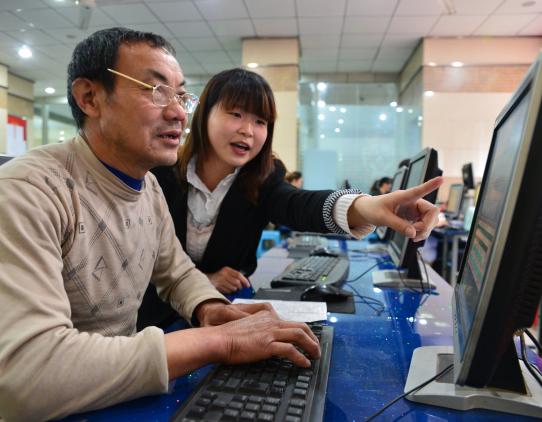The amount of data in the world is growing at an unprecedented rate, and data is becoming an integral part of the daily lives of most people everywhere. How do we tap the full value of data, ensuring equitable access for poor people? What reforms are needed in data governance to protect individuals, businesses, and societies from harm?
To explore how data can better advance development objectives, this topic page brings together important policy messages derived from World Bank research, including the World Development Report 2021: Data for Better Lives and other reports and papers. It also provides additional valuable resources for researchers and policymakers seeking to better understand and address the use of data for development.
Featured Content
Explore our curated insights, events, and learning opportunities on the topic of data for development.
Key Policy Messages
These are major themes and messages emerging from the latest World Bank research on using data to advance global development priorities. Click on each card to learn more and access related publications.
Countries need a new social contract for data

Countries need a new social contract for data
An agreement among all participants for creating, reusing, and sharing data is needed. This new social contract should:
- Enable the use and reuse of data to create economic and social value.
- Promote equitable opportunities to benefit from data.
- Foster citizens' trust in data systems.
Legal systems can be instruments for establishing, facilitating, and enforcing social contracts.
Public intent data can enable improvements in service delivery, targeting, accountability, and empowerment

Public intent data can enable improvements in service delivery, targeting, accountability, and empowerment
Public intent data hold great potential to make public programs and policy more effective. Governments should:
- Prioritize the production of robust data and enhance trust in its quality.
- Provide long-term, stable financing for data; invest in technical and statistical capacity; and address data literacy and infrastructure needs.
- Enact legislation for safe data production and reuse.
- Encourage the open and transparent use of data for decision making.
Private intent data can fuel growth and boost development

Private intent data can fuel growth and boost development
Data collected and curated by the private sector hold great potential to spur economic development and create jobs. To support this, policy makers should:
- Regulate data collection practices and ensure safe data storing and usage.
- Address constraints to achieving scale.
- Introduce sector regulations and support schemes to provide a level playing field for all firms.
Repurposing and combining data can deepen their development impact

Repurposing and combining data can deepen their development impact
To encourage more efforts to repurpose and combine data, governments should:
- Invest in creating data interoperability and in the research needed to leverage data.
- Emphasize policy initiatives and investments to build the data skills of analysts and decision-makers.
- Create institutional environments that encourage the use of sophisticated data and evidence in policy making.
Governments should align data governance with the social contract

Governments should align data governance with the social contract
The building blocks to deliver benefits from data while safeguarding against harmful outcomes include:
- Infrastructure policies: For universal broadband coverage and investments in domestic infrastructure to exchange, store, and process data.
- Laws and regulations: Safeguards to protect data. Enablers to facilitate data sharing.
- Economic policies: Antitrust policies for data platform businesses, trade policies in data-enabled services, and taxation policies of data platform businesses.
- Institutions: Government entities to oversee, regulate, and secure data.
Governments and their partners should build integrated national data systems

Governments and their partners should build integrated national data systems
An Integrated National Data System (INDS) is a framework that allows a country to share data between national participants safely while maximizing the benefit equitably. A well-functioning INDS:
- Builds data production, protection, exchange, and use in planning and decision making.
- Actively engages stakeholders.
- Requires financing/incentives to produce/protect/share data.
- Invests in physical and human capital to improve data governance, analytical and data security skills, and data literacy of the general public.














